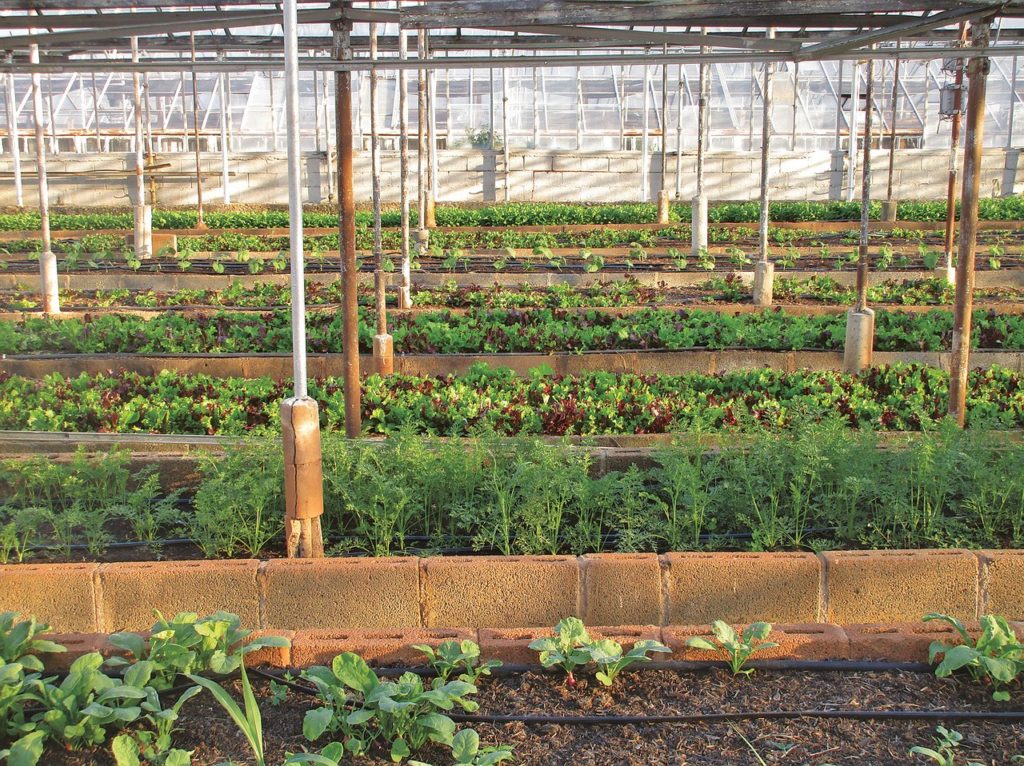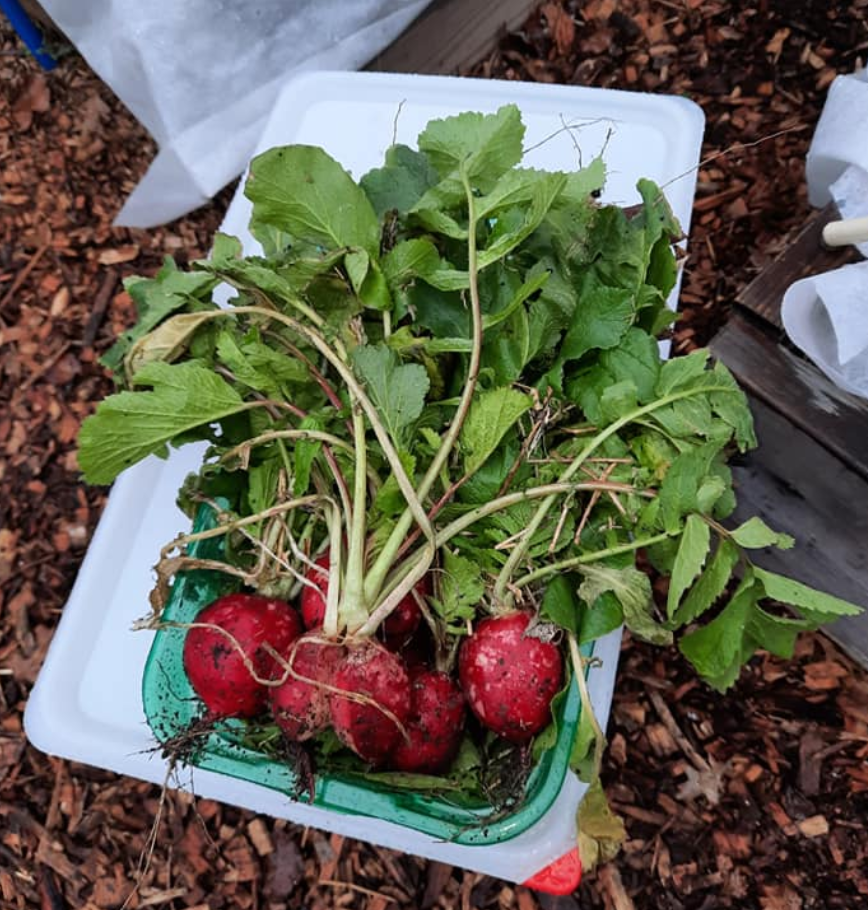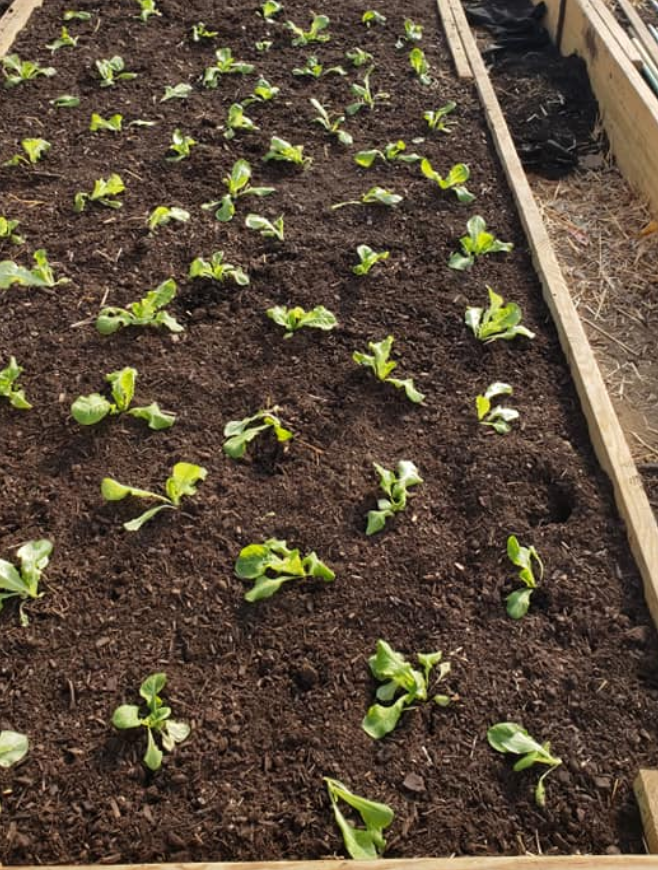Urban Farming to Overcome Food Insecurity
March 25, 2021
By Miriam Knopp, Dietetic Intern
Urban farming is growing food in a city or very populated area. There are environmental, social, and economic benefits to urban farming that promote sustainability. By and large, as cities are becoming more populated, more stress is put on the food system. Fortunately, efforts such as urban farming increase local food production and improve food security (1). This blog post will further discuss issues that can improve through urban farming. Ohio has high rates of food insecurity while food apartheid also negatively impacts minority communities. Urban farming, however, has come about to combat these effects and increase peoples exposure to healthier food options.

Food Insecurity in Ohio
Feeding America is the nation’s largest domestic hunger-relief organization. The organization works with partners to gather food before it goes to waste. Feeding America projected that 18.1% of Ohioans were food insecure in 2020. Ohio is therefore tied for the 10th highest state in the nation for overall food insecurity (2). Not to mention, almost one in seven households in Ohio experience food insecurity or cannot afford balanced meals on a day to day basis (3). Additionally, over one in four children in Ohio live in food insecure households (2). This has further negative impacts as food-insecure children have been found to have higher levels of aggressive behavior (4).
How can urban farming help?
Urban farming can provide and increase exposure to nutritious food options while increasing awareness of healthy eating (5). Currently, over one in seven people do not have access to enough protein and energy for their meals. Also, many individuals suffer from some form of micronutrient undernourishment (6). Diversity is the key to a healthy diet. It is especially important as it increases the chances of getting nutrients that are necessary for optimal health (7).
Another issue urban farming addresses are food deserts. A food desert is an area with limited access to healthy and affordable food such as produce. In other words, this means the closest grocery store is over a mile away in urban areas. Historically, these exist in under-served, low-income and minority neighborhoods. A term that more accurately describes this is food apartheid. Urban farming is a way to provide access to fresh produce in these food deserts.
Unfortunately, whiteness also dominates policy and practice in food systems. There are currently narratives such as “vote with your fork”. This one is based on the belief that what you eat reflects your values in the food system. In short, the narrative ignores communities that do not have the purchasing power to partake in this (8). Urban farming, however, is a way to bring this control back into the community’s hands.
Urban Farming with South Side Family Farms
South Side Family Farms (SSFF) is an organization in the South Side of Columbus who aim to reduce food insecurity. They do this by providing a safe space for discussion and learning through their urban farming gardens. Many urban communities with economically diverse populations and under-served people of color also lack adequate access to fresh fruits and vegetables. Their farming efforts provide fresh produce such as radishes to the community. For more information on SSFF, check out the SSFF website.


Dietitian In Your Kitchen
Dietitian In Your Kitchen (DIYK) partners with SSFF. It is the dietitians job to not only assess the dietary and health needs of clients or patients, but also to advocate for food security. One way dietitians can help reduce food deserts and improve food insecurity is by connecting with local farms such as SSFF. A family history of consuming mostly convenience foods can lead to a lack of education on how to use fresh produce and poor health. Therefore, education on healthy food choices and eating habits is key to introduce new foods into the diet. This can be provided by DIYK. For information on SSFF aand DIYK events, check out the DIYK facebook page.
Resources:
- Thomaier, S., Specht, K., Henckel, D., Dierich, A., Siebert, R., Freisinger, U. B., & Sawicka, M. (2014). Farming in and on urban buildings: Present practice and Specific novelties of Zero-acreage FARMING (ZFARMING). Renewable Agriculture and Food Systems, 30(1), 43-54. doi:10.1017/s1742170514000143
- COVID-19 updates from the front lines. (2020, December 07). Retrieved March 18, 2021, from https://ohiofoodbanks.org/coronavirus/
- Urban agriculture in Ohio. (2019, February 15). Retrieved March 18, 2021, from https://cfaes.osu.edu/stories/urban-agriculture-in-ohio
- Ashiabi, G. S., & ONeal, K. K. (2008). A framework for understanding the association between food insecurity and childrens developmental outcomes. Child Development Perspectives, 2(2), 71-77. doi:10.1111/j.1750-8606.2008.00049.x
- Poulsen, M. N., Neff, R. A., & Winch, P. J. (2017). The multifunctionality of urban farming: Perceived benefits for neighbourhood improvement. Local Environment, 22(11), 1411-1427. doi:10.1080/13549839.2017.1357686
- Godfray, H. C., Beddington, J. R., Crute, I. R., Haddad, L., Lawrence, D., Muir, J. F., . . . Toulmin, C. (2010). Food security: The challenge of feeding 9 billion people. Science, 327(5967), 812-818. doi:10.1126/science.1185383
- Fanelli Kuczmarski, M., Brewer, B. C., Rawal, R., Pohlig, R. T., Zonderman, A. B., & Evans, M. K. (2019). Aspects of dietary diversity differ in their association with atherosclerotic cardiovascular risk in a racially diverse us adult population. Nutrients, 11(5), 1034. doi:10.3390/nu11051034
- Conrad, A. (2020, September). Identifying and countering white supremacy culture in food systems. Retrieved March 18, 2021, from https://wfpc.sanford.duke.edu/reports/identifying-and-countering-white-supremacy-culture-food-systems
Subscribe to our newsletter
Get seasonal recipes, new trends in food and fitness, and dietitian jokes. There’s no spam, and you can unsubscribe at any time.
